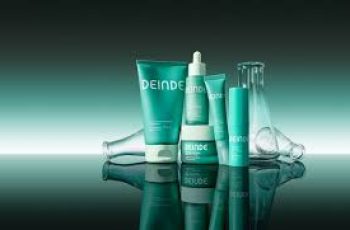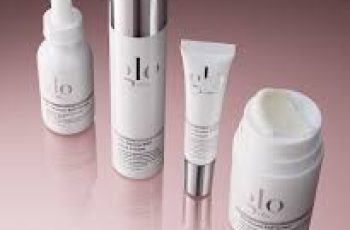
Dry Skin Causes and Treatment: A Complete Guide
Dry skin is a common yet frustrating issue for many people.
Whether you’re battling flaky patches, redness, or persistent tightness, understanding the causes and treatment options for dry skin is key to achieving healthier, more hydrated skin.
Here’s everything you need to know, from what causes dry skin to how you can treat it effectively.
What Causes Dry Skin?
Dry skin occurs when the skin barrier is damaged, allowing moisture to escape and leaving the skin dehydrated.
The skin barrier is like a protective shield, and when it’s compromised, the skin becomes vulnerable to environmental factors like pollutants, harsh weather, and chemicals.
The skin barrier is made up of lipids (fat molecules), which form a protective layer that helps keep moisture in and irritants out.
These lipids are typically composed of cholesterol, ceramides, and fatty acids.
When these lipids break down—due to things like harsh skincare products, excessive washing, weather extremes, or stress—tiny holes form in the skin barrier.
As a result, moisture evaporates, leaving the skin dry and prone to irritation.
Common Causes of Dry Skin
Environmental Factors: Exposure to cold, dry weather, and indoor heating can strip moisture from the skin. Wind and low humidity levels also exacerbate dryness.
Harsh Skincare Products:
Using cleansers that strip the skin of natural oils, such as foaming or fragranced products, can damage the skin’s barrier. Even alcohol-based toners or exfoliants can be too harsh for already dry skin.
Hot Water: Frequent use of hot water in showers or baths can weaken the skin’s natural oils, leading to increased dehydration.
Underlying Health Conditions: Conditions like eczema, psoriasis, and diabetes can make the skin more prone to dryness.
Medications, particularly those that affect cholesterol levels, can also disrupt skin hydration.
Diet and Hydration: A lack of hydration or essential fatty acids (like omega-3 and omega-6) in your diet can negatively impact your skin’s moisture levels.
Stress: Chronic stress can impair the skin barrier, making it more susceptible to dryness, inflammation, and irritation.
What Is the Skin Barrier?
The skin barrier (also known as the stratum corneum) is the outermost layer of skin that acts as a shield to protect the body from external factors, such as bacteria, allergens, and UV radiation.
It’s made up of lipids (fatty acids, cholesterol, ceramides) and dead skin cells that help prevent moisture loss.
When the skin barrier is compromised, water evaporates more easily, leaving skin feeling tight, dry, and irritated.
The goal in treating dry skin is to repair and reinforce the skin barrier so it can lock in moisture and keep irritants at bay.
How to Treat Dry Skin
1. Personalized Skincare Routine
To effectively treat dry skin, you need a routine tailored to your Baumann Skin Type®, a comprehensive skin typing system that helps determine your skin’s unique needs.
Here are some steps for treating dry skin:
Cleansers: Use non-foaming, hydrating cleansers. Avoid harsh soaps or foaming products, which can strip the skin of essential lipids.
Look for ingredients like glycerin, hyaluronic acid, ceramides, and shea butter.
Moisturizers: Choose barrier repair moisturizers with ingredients like ceramides, cholesterol, and fatty acids (such as stearic acid, cocoa butter, or shea butter).
These ingredients help rebuild the skin barrier and lock in moisture.
Hydrating Oils: Apply oils like argan oil, jojoba oil, and safflower oil on damp skin after bathing. These oils help replenish lost moisture and soothe inflammation.
2. How to Treat Dry Skin on the Body
Apply Oil on Damp Skin: After bathing, apply oil to your skin while it’s still damp. This helps seal in moisture and prevents evaporation.
Use a Barrier Repair Body Moisturizer: Follow the oil with a rich, hydrating body moisturizer that helps repair the skin barrier and prevent future moisture loss.
Skin Care Ingredients for Dry Skin
When dealing with dry skin, it’s important to focus on ingredients that support the skin barrier. Here are some key ingredients to look for:
Fatty Acids (Stearic Acid, Oleic Acid): These hydrate and restore the skin’s lipid barrier.
Ceramides: Lipid molecules that help restore the skin’s barrier and retain moisture.
Cholesterol: A vital component of the skin’s protective barrier.
Hyaluronic Acid: A humectant that draws moisture into the skin.
Shea Butter & Cocoa Butter: Rich, nourishing butters that hydrate and repair the skin barrier.
Jojoba Oil, Argan Oil, Safflower Oil: These hydrating oils replenish essential lipids, promote hydration, and soothe inflammation.
Tips for Dry Skin
In addition to a tailored skincare routine, consider these tips to protect and heal your skin:
Avoid Soap, Bubble Baths, and Foaming Shaving Creams: These can strip moisture and damage the skin barrier.
Limit Exposure to Hot Water: Use lukewarm water instead of hot showers or baths, and limit bath time to prevent moisture loss.
Moisturize Frequently: Apply a rich, hydrating moisturizer at least twice a day. Don’t forget to moisturize right after washing your hands or face to lock in moisture.
Use Gentle, Fragrance-Free Products: Avoid skincare products with alcohol, fragrance, or harsh chemicals that can irritate the skin.
Humidify Your Environment: If you live in a dry climate, consider using a humidifier to add moisture to the air and prevent skin from drying out.
Sleep and Stress Management: Try to get at least 7 hours of sleep each night, and practice stress-relieving activities (like yoga or meditation), as stress can impair the skin barrier.
How to Treat Dry Skin on the Face Overnight
If you’re looking for a quick fix for dry skin before an important event, here’s an emergency solution:
Exfoliate Gently: Use a mild facial scrub to remove dead skin cells, but only if your skin is not inflamed or cracked.
Hydrating Serum: Apply a serum with hyaluronic acid or glycerin to help hydrate and plump the skin.
Barrier Repair Moisturizer: Top it off with a barrier repair moisturizer containing ceramides, fatty acids, and cholesterol to lock in hydration.
While this trick may improve the appearance of your skin overnight, it’s no substitute for a consistent skincare routine to repair and maintain skin hydration.
Foods to Support Dry Skin
What you eat can directly impact the health of your skin. Foods rich in omega-3 fatty acids and linoleic acid are particularly helpful for dry skin. Try incorporating these foods into your diet:
Salmon, Mackerel, and Sardines: Rich in omega-3 fatty acids, which are essential for maintaining the skin barrier.
Flaxseed Oil: Contains high amounts of omega-3 fatty acids, which help reduce inflammation and support skin hydration.
Nuts and Seeds: Almonds, walnuts, and chia seeds are excellent sources of essential fatty acids that help keep the skin nourished.
Avocados: Packed with healthy fats and antioxidants, avocados help hydrate the skin from the inside out.
How to Differentiate Dry Skin from Eczema
Sometimes, dry skin can be mistaken for eczema, which is a more severe form of dry skin that can become inflamed and itchy. Here’s how to differentiate between the two:
Eczema: Typically involves more intense symptoms like itching, redness, and inflammation. It can also become infected if not properly treated.
Dry Skin: Characterized by tightness, rough texture, and flakiness, but without the significant inflammation and irritation seen in eczema.
If you suspect you have eczema, or if your dry skin doesn’t improve with over-the-counter treatments, it’s time to consult a dermatologist for proper diagnosis and treatment.
Conclusion
Treating dry skin requires a multi-faceted approach, from adopting the right skincare routine to addressing internal factors like hydration and stress.
With the right products and consistent care, you can help repair your skin barrier and achieve healthy, moisturized skin.
Be sure to tailor your skincare routine to your Baumann Skin Type® for the most effective results, and always protect your skin from environmental stressors.
If you’re unsure about which products are right for your skin, or if you’re experiencing persistent skin issues, consult a dermatologist for personalized advice and treatment.


